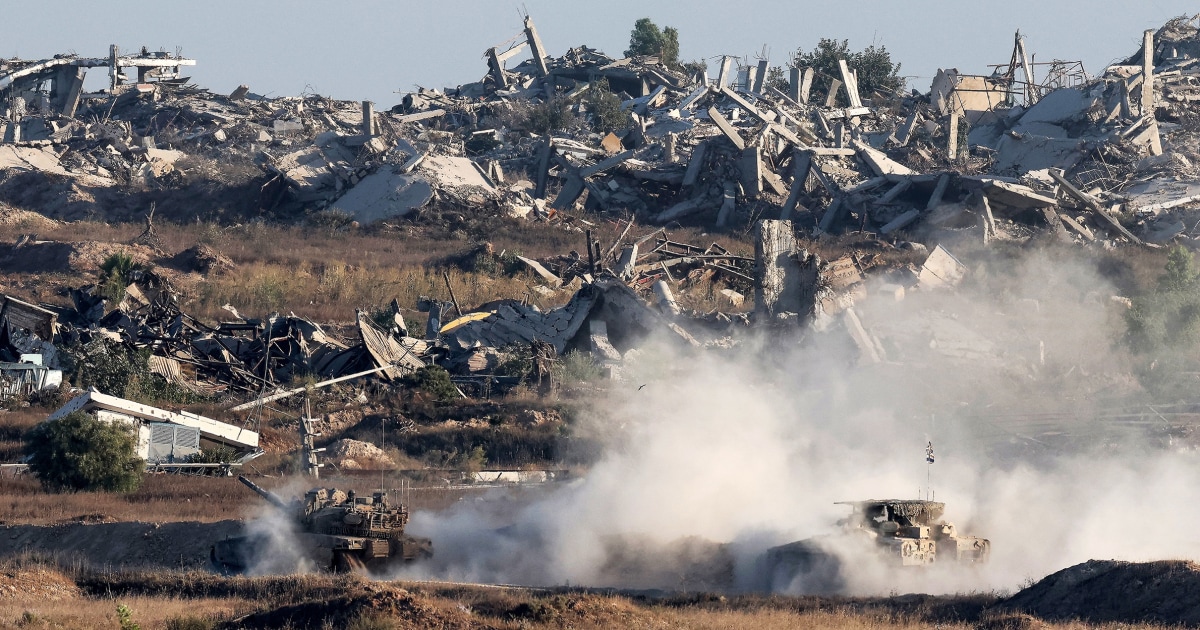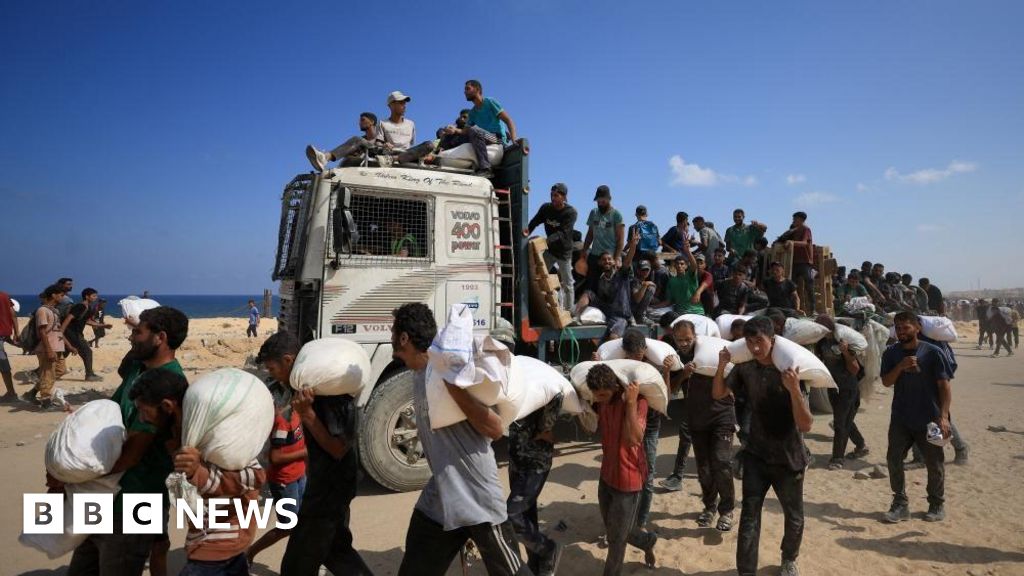Israeli Strike Targets Hamas Leadership in Qatar

Introduction
On Tuesday, the Prime Minister's Office of Israel confirmed that they had carried out a strike targeting Hamas leadership in Qatar. This is believed to be the first known Israeli military strike against the militant group in the Gulf nation, according to reports from CNN. The attack is seen as a significant escalation in the ongoing conflict between Israel and Hamas.
Key Details
The strike targeted a building in Doha, Qatar, which is known to be used by senior Hamas officials for meetings and operations. The Israeli military has not confirmed the specific details of the attack, but it is believed to have been carried out using precision-guided munitions. This attack comes amidst increased tensions between Israel and Hamas, with recent clashes and rocket attacks along the Gaza border.
Impact
The strike has raised concerns about the potential for further escalation in the conflict between Israel and Hamas. It also marks a significant shift in Israel's approach, as they have previously avoided targeting Hamas leadership in other countries. This attack could also have implications for the relationship between Qatar and Israel, as Qatar has been a key mediator between Israel and Hamas in the past.
About the Organizations Mentioned
Prime Minister's Office of Israel
The **Prime Minister's Office (PMO) of Israel** is a central executive body responsible for coordinating the work of all government ministries and assisting the Prime Minister in managing daily governmental affairs, policy formulation, and cabinet meetings. It plays a pivotal role in setting government priorities, overseeing national security, foreign relations, and managing critical state functions[4][6]. Historically, the PMO has evolved alongside Israel’s parliamentary democracy since the state's founding in 1948. The Basic Law: The Government, enacted in 1992 and amended over time, grants the Prime Minister broad authority to organize government offices, transfer ministerial duties, and establish committees for efficient governance[1]. A notable development was the establishment of the National Security Council (NSC) within the PMO in 1999, which was legally anchored in 2008. Under Prime Minister Benjamin Netanyahu, the NSC’s role expanded significantly, reflecting a global trend toward centralizing security and diplomatic policymaking within the Prime Minister’s Office, facilitated by modern communication technologies[3]. The PMO’s key achievements include strengthening Israel’s security policy framework, enhancing diplomatic agility, and streamlining government operations. Netanyahu’s leadership style has emphasized close consultation with advisers and the NSC, effectively making the PMO the hub for critical decision-making, especially in security and foreign affairs[3]. Currently, the PMO remains a focal point of Israel’s executive branch, coordinating ministries and ensuring cohesive policy implementation. It operates within a system of checks and balances, accountable to the Knesset (Israeli parliament), which oversees government actions through specialized committees and can compel ministerial testimonies or the Prime Minister’s attendance for scrutiny[4]. In business and technology contexts, the PMO’s increasing reliance on advanced communication and policy-planning staff illustrates Israel’s integration of technology into governance, enabling rapid decision-making and maintaining Israel’s strategic edge internationally[3]. This makes the PMO a key actor not only in politics but also in the broader landscape
Hamas
**Hamas** is a Sunni Islamist Palestinian nationalist organization that functions both as a political party and a militant group, primarily operating in the Gaza Strip, which it has governed since 2007. Founded in 1987 by Ahmed Yassin amid the First Intifada, Hamas emerged from the Muslim Brotherhood and initially had covert Israeli support as a counterweight to the secular Palestinian Liberation Organization (PLO)[3][1]. It combines political governance with an armed wing, the al-Qassam Brigades, committed to armed resistance against Israel, which it refuses to recognize as a legitimate state[1][3]. Hamas’s political rise culminated in a 2006 electoral victory in the Palestinian Legislative Council, campaigning on anti-corruption and resistance platforms. After violently seizing Gaza from the rival Fatah faction in 2007, Hamas has maintained de facto control there despite international isolation and blockades imposed by Israel and Egypt[3]. Its governance has been marked by repeated conflicts with Israel, including major wars in 2008–09, 2012, 2014, 2021, and the ongoing intense conflict triggered by Hamas’s surprise October 2023 attack killing nearly 1,200 Israelis and taking hostages[1][2][3]. Hamas benefits from regional support, especially from Iran, which supplies funding and weapons, as well as financial and political backing from Turkey and Qatar. These alliances form part of a broader "axis of resistance" against Israel, which includes groups like Hezbollah and Palestinian Islamic Jihad[2]. Hamas also operates fundraising networks globally, sometimes using charities as fronts to support its military activities[4]. The group is designated a terrorist organization by many countries, including the United States, which has increased military aid to Israel following recent escalations[2][6]. Despite modifying its 1988 charter in 2017 to soften some language, Hamas continues to reject Israel’s legitimacy and pursues all forms of resistance[1]. Its enduring political
CNN
**CNN (Cable News Network)** is a pioneering 24-hour cable news channel founded by media mogul Ted Turner and launched on June 1, 1980. It revolutionized television news by providing continuous, live news coverage worldwide, breaking from the traditional scheduled news broadcasts prevalent at the time[1][3][4][5]. CNN's headquarters are in Atlanta, Georgia, where it remains a major hub for news production. **History and Growth:** CNN was born from Ted Turner’s vision to create the first all-news channel, despite skepticism from industry professionals. Starting with a modest team and resources, it grew rapidly, expanding its reach through cable, satellite, and digital platforms. In 1982, CNN introduced CNN2 (later HLN), the first news channel to use a "wheel" schedule, and in 1985 launched CNN International to serve global audiences[1][4][6]. The network gained significant prominence during events like the 1991 Persian Gulf War, offering real-time battlefield coverage that established CNN as a trusted news source[3][6]. CNN’s website, CNN.com, launched in 1995, was among the first major news websites, marking its early embrace of digital news delivery[6]. **Ownership and Business Evolution:** In 1996, CNN became part of Time Warner (later WarnerMedia), and subsequently Warner Bros. Discovery, reflecting its integration into a major media conglomerate[1][2][6]. The network has adapted to changing media landscapes, including cost-cutting measures announced in 2022 but maintaining a commitment to longform and investigative content[1]. **Key Achievements:** CNN is credited with shaping modern journalism through its live, around-the-clock news coverage and global bureaus. It has earned numerous awards for its reporting and has influenced the creation of similar 24-hour news channels. Its notable anchors and correspondents, such as Bernard Shaw and Christiane Amanpour, have contributed to its authoritative reputation[1]













